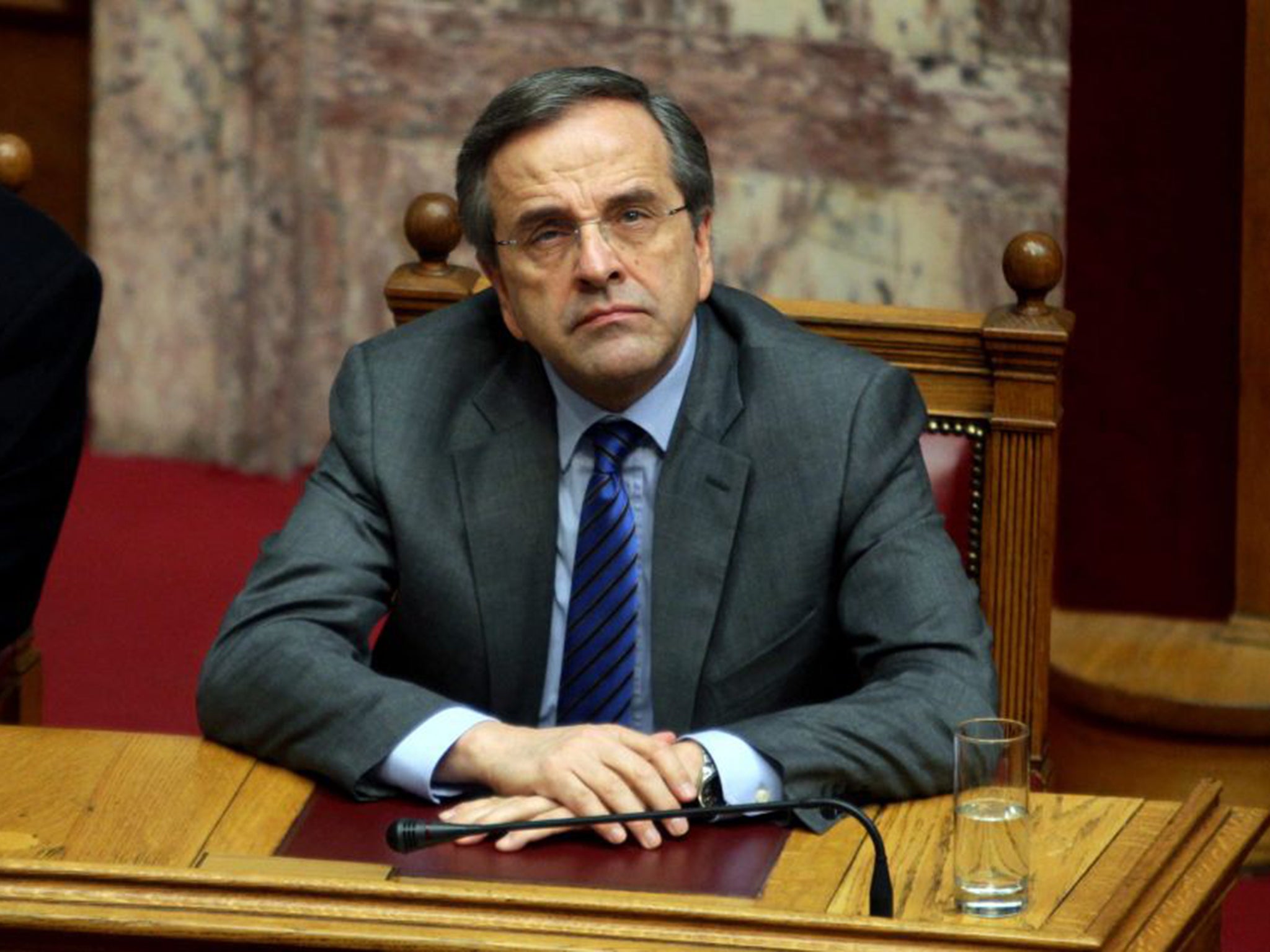High stakes as Greece labours to find a leader
If coalition government's candidate fails in Monday's vote, the country will go to the polls

Your support helps us to tell the story
From reproductive rights to climate change to Big Tech, The Independent is on the ground when the story is developing. Whether it's investigating the financials of Elon Musk's pro-Trump PAC or producing our latest documentary, 'The A Word', which shines a light on the American women fighting for reproductive rights, we know how important it is to parse out the facts from the messaging.
At such a critical moment in US history, we need reporters on the ground. Your donation allows us to keep sending journalists to speak to both sides of the story.
The Independent is trusted by Americans across the entire political spectrum. And unlike many other quality news outlets, we choose not to lock Americans out of our reporting and analysis with paywalls. We believe quality journalism should be available to everyone, paid for by those who can afford it.
Your support makes all the difference.Greek politicians head for a decisive vote tomorrow to install a new president – knowing that failure to do so will thrust the country towards snap elections and a period of renewed political instability.
For the third and final time, the 300-seat assembly will be called to elect the country's new president at midday tomorrow. Failure to support the coalition government's candidate, former EU commissioner Stavros Dimas, by at least 180 votes would signal a no-confidence vote in the current administration and parliament would be dissolved leading the country to early polls.
"I hope with the third vote, we'll avoid national danger," Prime Minister Antonis Samaras warned in a recent address to the nation.
In the previous vote, the Premier managed to persuade 168 MPs to back his choice – an increase on the first round of voting, but still 12 seats short. While Mr Samaras appeared more optimistic after that vote, the result of the third vote is still on a knife-edge – with some parties already preparing for an election campaign trail.
The main opposition, the left-wing Syriza party, welcomes the potential for snap elections, despite the jitters it would send through the financial markets.
"[If elections were to take place] they will be the most important in the history of this country," Syriza MP Dimitris Tsoukalas told The Independent on Sunday.
Syriza would probably win any snap election, according to polls. If it did triumph, Mr Tsoukalas said: "Our party will need to find ways to end the catastrophe inflicted the Greek people and the country while staying within the eurozone."
The extra pro-government votes could lie with opposition MPs from smaller parties, such as Democratic Left, a former partner of the ruling coalition, or the right-wing Independent Greeks party. Both parties have pledged to vote against Mr Dimas.
"Things are looking very difficult for the government," said MEP George Kyrtsos of the New Democracy party, which is led by Mr Samaras and has the most seats in parliament.
"The likely scenario is parliament won't elect a president and the country will head to early elections, which will create economic malfunctions for Greece," he added.
Syriza's inflammatory rhetoric about ending the country's austerity is behind the party's popularity. It is also fanning the flames of further turmoil in the eurozone, with many analysts resuscitating a "Grexit" scenario – Greece leaving the eurozone – despite Syriza's recent pro-European stance.
Speaking to Bild newspaper in an interview published yesterday, German Finance Minister Wolfgang Schäuble warned that Greece had to stick by its austerity commitments. "Every new government needs to fulfil the contractual agreements of its predecessors," he said. "But if Greece goes in another direction then that's going to be a difficult situation."
Alexis Tsipras, the leader of Syriza, has vowed to put an end to austerity and renegotiate the country's bailout agreement while keeping Greece in the euro. The left-wing party continues to argue that, if elected, it would urge MPs to repeal the slew of austerity measures voted in by successive parliaments in the past four years and cancel at least half of the country's debt.
Join our commenting forum
Join thought-provoking conversations, follow other Independent readers and see their replies
Comments